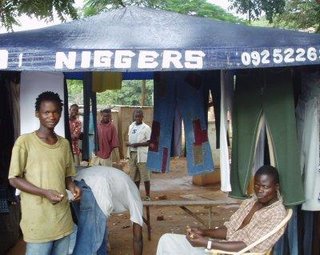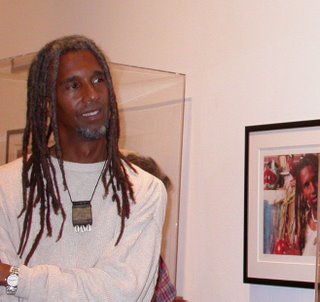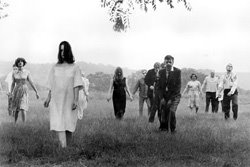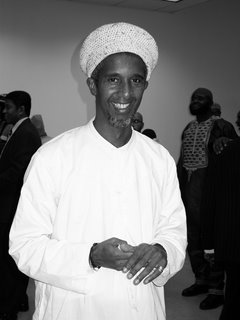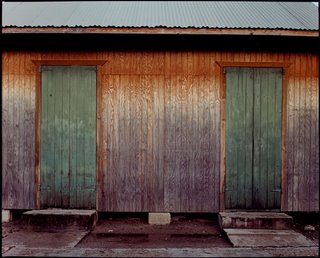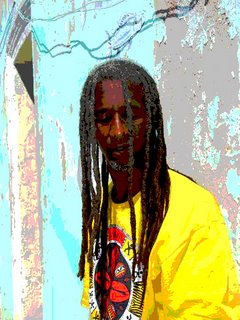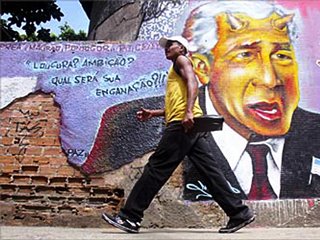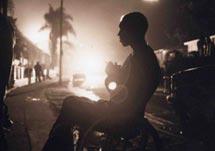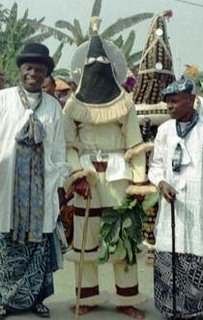
ñáñigo
I am not only an African drum maker, I also repair drums.
I replace the goatskin heads on djembe drums. When I work with drums I always feel as if I am doing something that one of my ancestors had done long before me. I feel as though I am channeling this wisdom from the great beyond of my ancestors.
I was never formerly instructed in the art of drum making by anyone. Yet, I can say that I was instructed in drum making by guiding spirits. I have made hundreds of drums and my drums have been featured in two major museum exhibitions.
One day I repaired some drums for Onoche Chukwurah who is an Igbo storyteller from Eastern Nigeria. We were having a typically enlightening conversation about African and Afro-Caribbean culture. I can't remember how it occurred in the conversation but he said that he thought I should investigate the Efik culture in relationship to my own Caribbean bloodlines.
Some things that happen to me are quite esoteric and difficult to explain; in terms of my knowledge of Africa and my ancestors. I have always been able to identify "what comes from where". I've always been able to understand Africa in a way that only historians can. Many times in my passionate research of African culture, I would innately know the answer to the question. Research would only validate that which I knew or felt before hand. My psychic connection to my ancestors is simply something I took for granted. It is not anything that academics would respect without research. Maybe my real quest is to prove to others the validity of my psychic knowledge.
Something esoteric was sparked in me by Onoche's comment about the Efik ethnic group. Earlier, I had told my older brother (who shares my passion for African cultural research) that I had a feeling that we had some connections in our family to the area of Nigeria referred to as the Cross River Delta. It is the southwestern region that borders Cameroon. The region is also referred to as Calabar.
When one thinks of the ethnic groups that have discernible cultural influence in the Caribbean the major groups that come to mind are Yoruba, Bakongo, Ashanti, Mande and Fon. We can very easily see, hear and feel their influences. The Yoruba gave us the liturgy and musical foundation of La Regla de Ocha & Shango. The Bakongo gave us many musical instruments and spiritual concepts beside Palo Mayombe. The Ashanti brought many fine arts and a joyous non-secular music and dance. The Mande, like the Yoruba, brought the civic organization of former city-state dwellers. The Fon brought the powerful way of Vodun. Some other groups contributing to the Caribbean's culture were the nomadic Hausa & Fulani who were adept at agrarian skills and animal herding. What about the Efik? My friend Onoche suggested that the Efik contributions could be seen in the majority of the colorful carnival costumes.
I had heard the Abakuá music of Cuba since I was a kid but I thought it was just a kind of Yoruba music. I did not know then what I know now; the Abakuá Secret Society is a male-only fraternal order. Abakuá members derive their culture from the Efik and Efo of the Cross River Delta in Nigeria. I thought that Abakuá existed only in Cuba, now I know otherwise. The Abakuá society went beyond Cuba to Puerto Rico and Trinidad. I have seen the name Calabar used as a designation of ethnicity before; on the manifest of Puerto Rico bound Spanish slave ships.
When I was younger, my mother would always refer to ñáñigo whenever she referred to traditional African religion. She never said Lucumi, Santeria, Obeah,Vodun or Palo. As far as I was concerned, there were some unexplained spirit concepts that I didn't understand but I only knew one word to describe them: ñáñigo. It was a word that I heard my mother and my grandmother use often but I thought Lucumi and ñáñigo were one and the same. When I got older I mistook ñáñigo for ñágo. What I did not realize is that ñáñigo and Abakuá are the same. Some people say that the secret society practiced a malevolent sorcery, still others disagree.
Looking at the Abakuá ceremonial costume I see some similarities with some of the masquerade costumes in Ponce. I am especially drawn to the fact that the mask and costume have a leopard spot pattern. This is intriguing because the leopard is a symbol of power for the Abakuá. Since my mother and grandmother only used this word ñáñigo for certain occult practices or occurrences I feel that I must do my research to understand more.
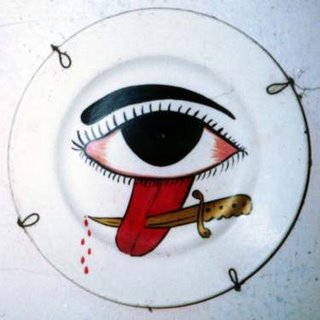 "La Mala Lengua" / Cuba / a warning to those who tell
"La Mala Lengua" / Cuba / a warning to those who tell